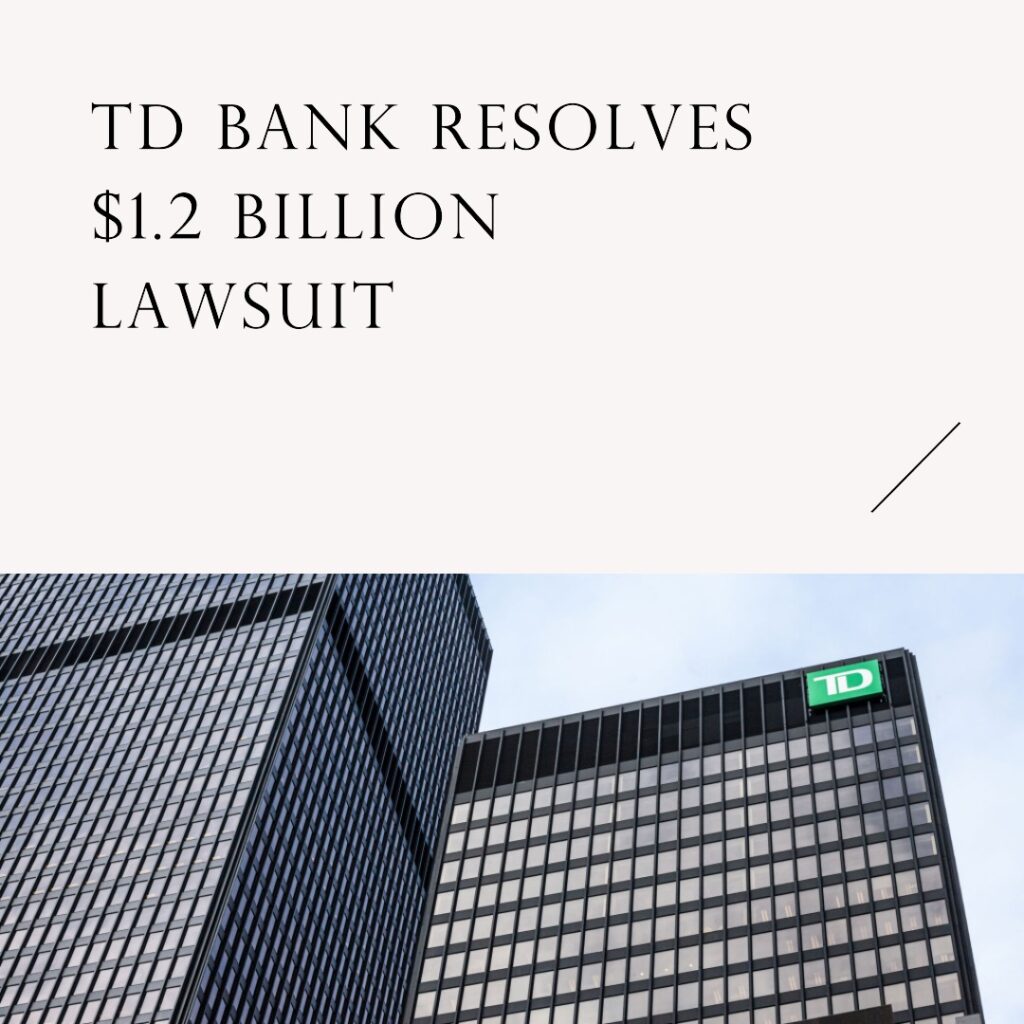Toronto-Dominion Bank (TD Bank), one of Canada’s largest financial institutions, agreed to pay a staggering $1.2 billion to settle a lawsuit related to its alleged involvement in one of the biggest Ponzi schemes ever orchestrated, led by the disgraced financier Allen Stanford. This agreement has sparked a wave of scrutiny over the bank’s corporate governance and risk management practices.
Background of the Case
Table of Contents
The lawsuit centered on allegations that TD Bank aided Stanford’s massive $7 billion Ponzi scheme, which collapsed over a decade ago. Stanford, a Texas financier, was later convicted and is currently serving a 110-year sentence for his fraudulent activities. Phony investments in high-yielding certificates of deposit at the Stanford International Bank marked his elaborate Ponzi scheme.
TD Bank’s Role and Settlement
Investors in the suit claimed that TD Bank, among other financial institutions, played a crucial role in enabling Stanford’s Ponzi scheme. They alleged that the bank failed in its duty to monitor and report suspicious banking activities, effectively becoming a silent partner in Stanford’s fraudulent operations.
Facing mounting legal pressure and potential reputational damage, TD Bank decided to settle the lawsuit by agreeing to a massive $1.2 billion payment. This landmark settlement is seen as a significant victory for Stanford’s victims, marking a step toward financial recovery after suffering substantial losses.
Reactions and Future Implications
The scale of the settlement underscores the severity of the allegations against TD Bank and raises questions about its risk management practices. The settlement will inevitably have a significant financial impact on the bank, but perhaps more crucially, it will likely damage its reputation. Given the scale of the fraud and the bank’s alleged complicity, this could potentially affect its future business prospects.
Moreover, the lawsuit has wider implications for the banking industry as a whole. It sends a clear message that financial institutions can be held accountable for their actions and are expected to exercise due diligence to prevent illicit activities.
Impact on Investors and the Market
While the $1.2 billion settlement is significant, it only partially covers the $7 billion that investors lost in the Ponzi scheme. Nevertheless, it does provide some level of financial restitution for the victims. This case underscores investors’ importance in remaining vigilant and conducting thorough due diligence before entrusting their funds to any investment schemes or financial institutions.
The TD Bank settlement also serves as a stark reminder for financial institutions to improve their compliance systems and adhere to strict risk management practices. It is clear that the cost of compliance failure, both in monetary terms and reputational damage, can be devastating. The lawsuit and its resolution may prompt other banks and financial institutions to reassess their internal controls to prevent being implicated in similar scandals in the future.
Conclusion
The TD Bank settlement marks a significant development in holding financial institutions accountable for their alleged role in facilitating financial fraud. While the settlement brings some financial relief to Stanford’s victims, it also serves as a stern reminder to banks and financial institutions worldwide about the paramount importance of risk management and compliance. As the dust settles on this high-profile case, observing how the banking industry reacts and adapts to the lessons learned from this lawsuit will be interesting.
In a world where financial transactions are increasingly complex and global in nature, the role of banks in preventing and detecting fraudulent activities is more crucial than ever. This case is a call to action for all stakeholders in the financial industry to uphold the highest standards of integrity and vigilance to safeguard investors’ interests and maintain trust in the financial system.


